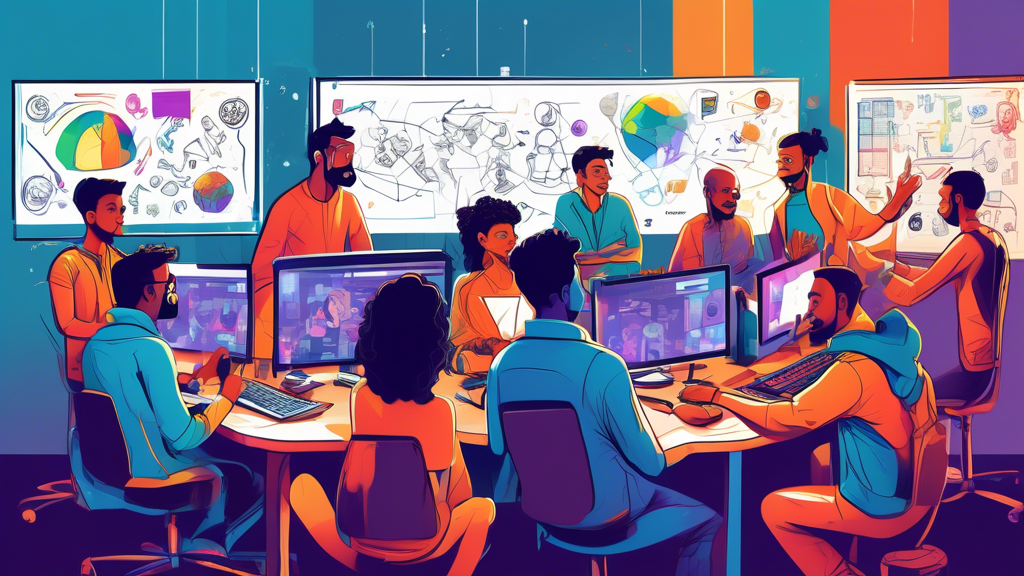Introduction
Online gaming has become a booming industry, with millions of players engaging in various games daily. Developing online games requires a unique blend of creativity, technical skills, and a deep understanding of player behavior. In this guide, we will explore the essential steps and considerations involved in creating online games from concept to launch.
Understanding the Gaming Industry
Market Research and Concept Development
Before diving into the development process, it is crucial to conduct extensive market research to identify trends, player preferences, and potential gaps in the market. This research will help you conceptualize a game that resonates with the target audience. Think about what sets your game apart and why players would choose it over existing options.
Storyline and Gameplay Design
Once you have a concept in mind, it’s time to delve into the storyline and gameplay mechanics. Create a compelling narrative that immerses players in the game world. Design engaging levels, challenges, and rewards to keep players motivated and entertained.
Graphics and Sound Design
Visually appealing graphics and immersive sound effects are essential components of any successful online game. Work with talented artists and sound engineers to create stunning visuals and audio that enhance the overall gaming experience. Remember, aesthetics play a significant role in player engagement.
Technical Development
Choosing the Right Development Tools
There is a wide range of development tools available for creating online games, each with its strengths and weaknesses. Whether you opt for popular engines like Unity or Unreal Engine or prefer to code from scratch, choose tools that align with your project’s scope and requirements.
Programming and Prototyping
Programming lies at the core of game development. Write clean, efficient code to bring your game to life. Start with prototyping to test gameplay mechanics and make necessary adjustments early in the development cycle. Iteration is key to refining the gaming experience.
Multiplayer Functionality and Testing
For online games, integrating multiplayer functionality is a crucial step. Whether you’re creating a massive multiplayer online role-playing game (MMORPG) or a competitive multiplayer experience, thorough testing is essential to ensure smooth gameplay, minimal lag, and proper balance.
Monetization and Marketing
Monetization Strategies
There are various ways to monetize online games, including in-game purchases, subscriptions, ads, and sponsorships. Consider your target audience and the nature of your game when choosing the right monetization strategy. Balance revenue generation with providing value to players.
Marketing and Player Acquisition
Developing a great game is only half the battle; effective marketing is crucial to attract players. Utilize social media, influencer partnerships, press releases, and community engagement to create buzz around your game. Build a strong community around your game to ensure lasting success.
Conclusion
Creating online games is a challenging yet rewarding endeavor that requires a combination of creativity, technical skills, and strategic thinking. By following the steps outlined in this guide, you can embark on your game development journey with confidence. Remember, the key to success lies in understanding your target audience, delivering engaging gameplay, and staying adaptable in a dynamic industry.
Call to Action
If you’re ready to bring your online game development ideas to life, visit StarMetaverseGeorgia.com for all your web development needs. Let’s turn your gaming vision into a reality!

Comments are closed